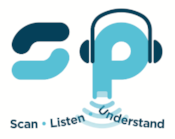Dyslexia – The Positives!
I recently read a fabulous article about a young boy who lives in Ireland and who has Dyslexia. His name is Ryan Hamilton Black if you want to google the article. Anyway, Ryan isn’t bothered by his Dyslexia - he says it gives him Superpowers. He is great at “knowing how other people feel” and at “figuring out how to work out problems.” Fantastic! He doesn’t see his Dyslexia as a problem, it gives him superpowers! (I may have used too many exclamation marks there but it is great statement and I love exclamation marks!)
Also, a study commissioned by the BBC found that 40% of self-made millionaires are dyslexic. Forty Percent!!!! Bearing in mind 5-10% of the population have Dyslexia, this is a high prevalence. Now I’m not suggesting becoming a millionaire should be deemed the pinnacle of success - there are many other, different measures of success. But for the purpose of this blog I am classing being a self-made millionaire as fairly successful!
These stories show how Dyslexia doesn’t have to hold people back. It can be the opposite – having Dyslexia can mean you develop skills that other people don’t - superpowers!
Dyslexia is a learning difference not difficulty. In the current education system, these positive traits may not always be apparent. The education system isn’t currently set up for Dyslexic people to shine although it is getting better, and the development of assistive technology is helping.
So, what are the good qualities that can come with Dyslexia or develop as a result of Dyslexia that allow people can shine? What other superpowers does Dyslexia come with? I’ve spoken to friends who have dyslexia and read around on the internet to discover the positives of having Dyslexia.
Dyslexic people have to learn to think outside the box. By not being able to work in the ‘normal’ way, they have to learn to think outside the box, think around the problem. As a result, they can develop independent thinking skills, excellent problem solving skills. Incredibly useful skills in the ‘real world’ after school. I have also read somewhere that 50% of NASA employees have Dyslexia, they are sought specifically for their problem-solving skills.
Many people with Dyslexia have an improved ability to learn from experience. They remember facts as stories or experiences so learn from them. They also think and remember in pictures so have better picture recognition memories.
Apparently, a clever scientist at Harvard did a study and found that people with Dyslexia have better peripheral vision! So if I’m going in to space or flying in a plane having a pilot with Dyslexia is a bonus!
People with Dyslexia can be very creative. There are many many actors and actresses who have Dyslexia but are still able to learn lines and be successful in their professional. Picasso had Dyslexia and did many other artists.
So, bearing all this in mind I think we need ‘Miss Dyslexia’ in the next X Men Film. She can see the bigger picture. She can solve problems others can’t. She will see things coming before anyone else.
Dyslexia - a learning difference that comes with a whole host of benefits.





